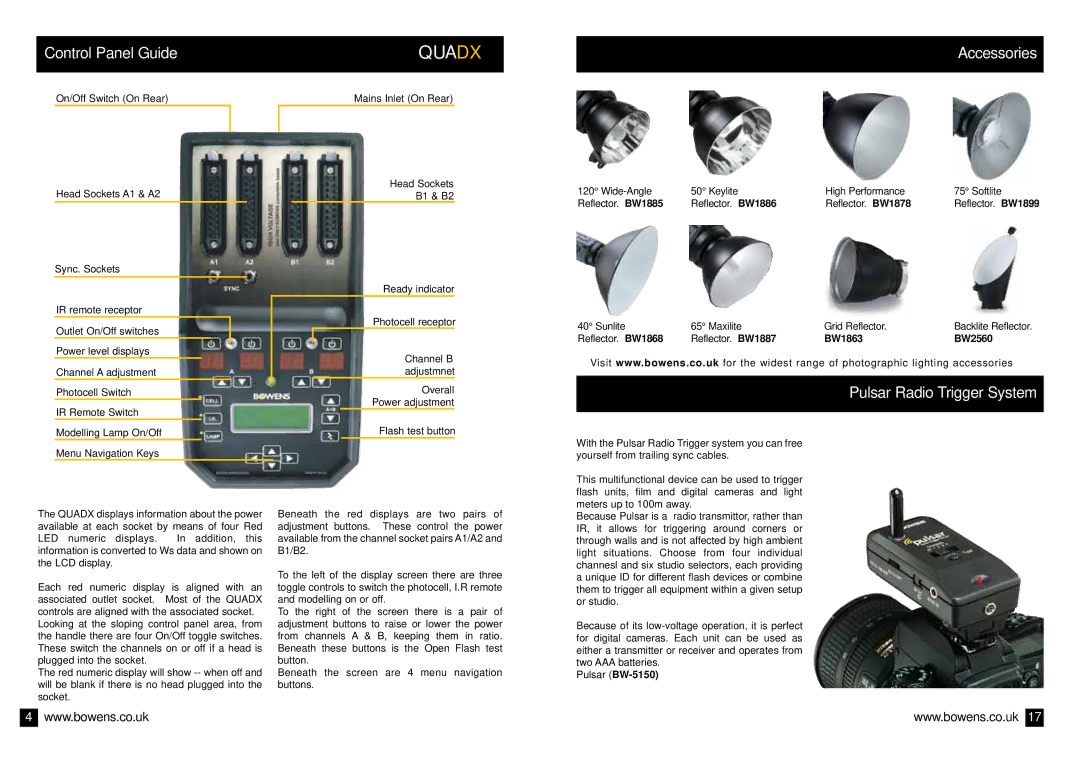
Control Panel Guide
On/Off Switch (On Rear)
Head Sockets A1 & A2
Sync. Sockets
IR remote receptor
Outlet On/Off switches
Power level displays
Channel A adjustment
Photocell Switch
IR Remote Switch
Modelling Lamp On/Off
Menu Navigation Keys
QUADX
Mains Inlet (On Rear)
Head Sockets
B1 & B2
Ready indicator
Photocell receptor
Channel B adjustmnet
Overall
Power adjustment
Flash test button
Accessories
120° |
| 50° Keylite | High Performance | 75° Softlite |
Reflector. BW1885 |
| Reflector. BW1886 | Reflector. BW1878 | Reflector. BW1899 |
|
|
|
|
|
40° Sunlite | 65° Maxilite | Grid Reflector. | Backlite Reflector. |
Reflector. BW1868 | Reflector. BW1887 | BW1863 | BW2560 |
Visit www.bowens.co.uk for the widest range of photographic lighting accessories
Pulsar Radio Trigger System
With the Pulsar Radio Trigger system you can free yourself from trailing sync cables.
This multifunctional device can be used to trigger flash units, film and digital cameras and light meters up to 100m away.
The QUADX displays information about the power available at each socket by means of four Red LED numeric displays. In addition, this information is converted to Ws data and shown on the LCD display.
Each red numeric display is aligned with an associated outlet socket. Most of the QUADX controls are aligned with the associated socket.
Looking at the sloping control panel area, from the handle there are four On/Off toggle switches. These switch the channels on or off if a head is plugged into the socket.
The red numeric display will show
Beneath the red displays are two pairs of adjustment buttons. These control the power available from the channel socket pairs A1/A2 and B1/B2.
To the left of the display screen there are three toggle controls to switch the photocell, I.R remote and modelling on or off.
To the right of the screen there is a pair of adjustment buttons to raise or lower the power from channels A & B, keeping them in ratio. Beneath these buttons is the Open Flash test button.
Beneath the screen are 4 menu navigation buttons.
Because Pulsar is a radio transmittor, rather than IR, it allows for triggering around corners or through walls and is not affected by high ambient light situations. Choose from four individual channesl and six studio selectors, each providing a unique ID for different flash devices or combine them to trigger all equipment within a given setup or studio.
Because of its
Pulsar
4 | www.bowens.co.uk | www.bowens.co.uk | 17 |
